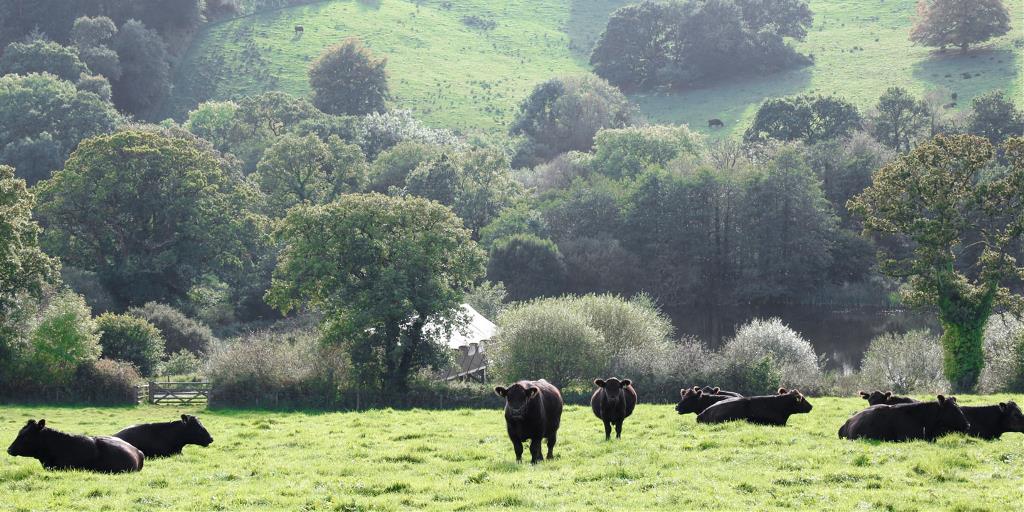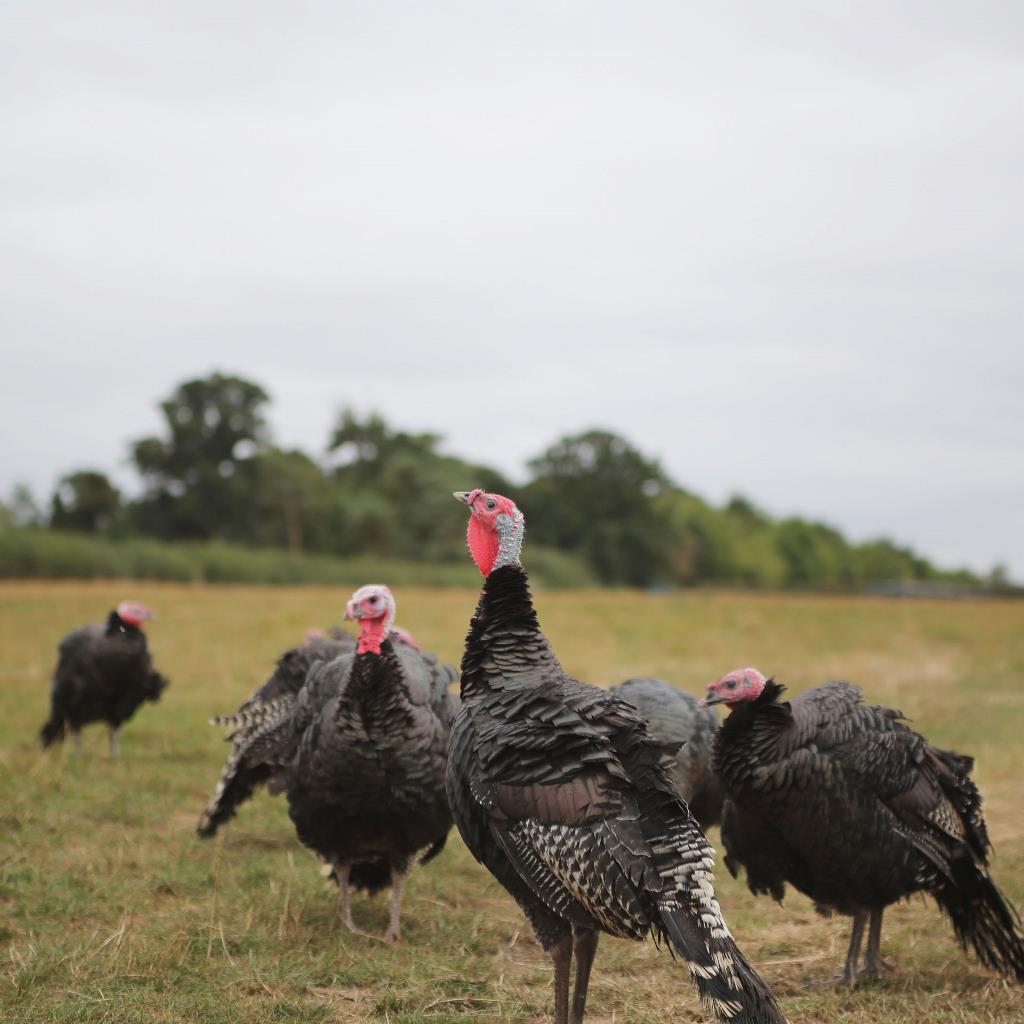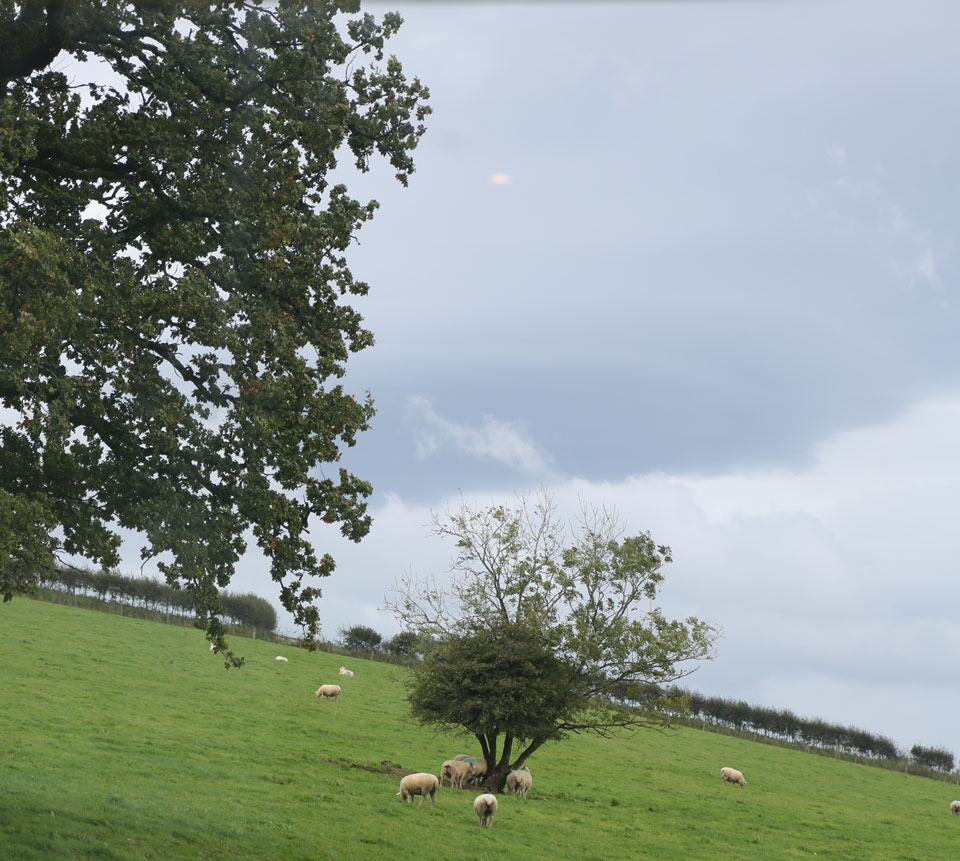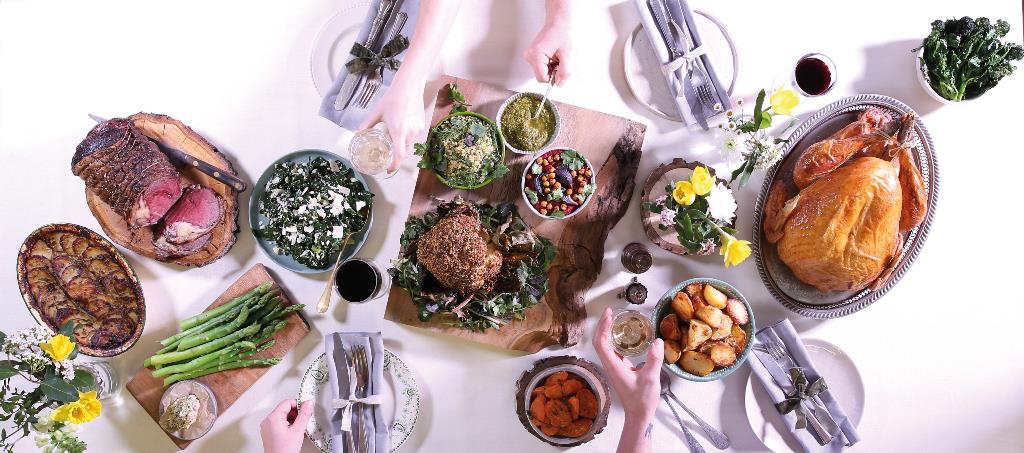The secret ingredient to outstanding organic meat is just that. Animals who are treated compassionately, with all the time they need to be out-standing (or sitting) in their fields.
Easter feasting - amazing grazing

For some, an Easter feast just isn’t complete without a mouthwatering joint of lamb sizzling away in the oven. In fact, a roast done right can elevate a simple dinner into an occasion to remember. Nothing brings people together like sharing a good, hearty meal after all.
That said, we also share a responsibility to pay attention to where our food comes from, and how it ends up on our plate too. With a growing understanding of how the food we eat affects the planet as well as our bodies, the idea of eating better quality meat, less often, is gaining momentum. It’s even been endorsed by the UK’s leading organic certification body, the Soil Association.


First, some facts. According to the Soil Association, despite their effectiveness declining due to overuse, almost two thirds of all antibiotics in the EU are given to non-organic farm animals. Over one million tonnes of GM crops are also imported every year to feed them. In other words, there’s always a cost to cheap meat, even if it’s not obvious at first.
Rearing animals for organic meat means feeding them a natural, GMO-free diet (the biggest added cost to organic farming), and saying a big “no thank you” to the routine use of antibiotics. Even better, to be certified organic, a farm must adhere to strict standards for high animal welfare too.
From weaning times to time spent outdoors, every one of our farmers has made a commitment to (and in some cases won awards for) doing things the right way, without cutting corners or costs.
There’s no denying that it costs more up front, but eating only organic meat, even if less frequently, means that the planet isn’t paying the price.
 *www.ncl.ac.uk/press/articles/archive/2016/02/organicandnon-organicmilkandmeat/
*www.ncl.ac.uk/press/articles/archive/2016/02/organicandnon-organicmilkandmeat/
That said, we also share a responsibility to pay attention to where our food comes from, and how it ends up on our plate too. With a growing understanding of how the food we eat affects the planet as well as our bodies, the idea of eating better quality meat, less often, is gaining momentum. It’s even been endorsed by the UK’s leading organic certification body, the Soil Association.


First, some facts. According to the Soil Association, despite their effectiveness declining due to overuse, almost two thirds of all antibiotics in the EU are given to non-organic farm animals. Over one million tonnes of GM crops are also imported every year to feed them. In other words, there’s always a cost to cheap meat, even if it’s not obvious at first.
Rearing animals for organic meat means feeding them a natural, GMO-free diet (the biggest added cost to organic farming), and saying a big “no thank you” to the routine use of antibiotics. Even better, to be certified organic, a farm must adhere to strict standards for high animal welfare too.
From weaning times to time spent outdoors, every one of our farmers has made a commitment to (and in some cases won awards for) doing things the right way, without cutting corners or costs.
There’s no denying that it costs more up front, but eating only organic meat, even if less frequently, means that the planet isn’t paying the price.
Always Organic
A study in the British Journal of Nutrition* shows that organic meat is known to contain up to 50% more beneficial omega-3 fatty acids than conventional, non-organic meat.
A study in the British Journal of Nutrition* shows that organic meat is known to contain up to 50% more beneficial omega-3 fatty acids than conventional, non-organic meat.
 *www.ncl.ac.uk/press/articles/archive/2016/02/organicandnon-organicmilkandmeat/
*www.ncl.ac.uk/press/articles/archive/2016/02/organicandnon-organicmilkandmeat/
Back to top

